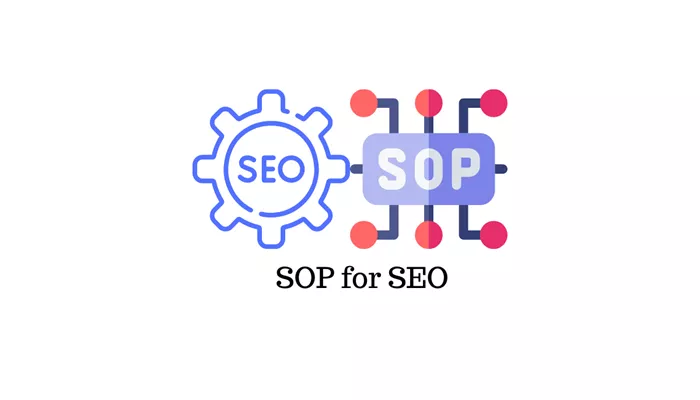Standard Operating Procedures (SOPs) are often associated with large organizations, but they are equally vital for small SEO teams and solo operators. In the fast-paced world of SEO, where every task and every hour counts, a smart, streamlined system can be the difference between growth and chaos.
For small teams juggling audits, content creation, reporting, and client management, SOPs serve as a powerful tool to ensure efficiency and consistency. Without them, teams risk wasting time on repetitive tasks or constantly reinventing processes — luxuries small SEO operators simply cannot afford.
The Misconception: SOPs Are Only for Big Teams
A common myth is that small teams don’t need SOPs. In reality, the smaller the team, the more critical well-defined SOPs become. They prevent reliance on memory or informal knowledge-sharing, which often leads to errors and inefficiencies.
SOPs might sound tedious or overly corporate, but when properly designed, they make SEO teams more agile, consistent, and less stressed. Key benefits include:
Consistency: Ensuring audits, reports, meta descriptions, and internal linking are handled the same way every time.
Delegation: Tasks can be assigned to junior staff, freelancers, new hires, or even AI tools without endless explanations.
Speed: Workflows are pre-planned, eliminating the need to “reinvent the wheel.”
Scalability: Enables growth without bottlenecks at every step.
Successful companies like Basecamp (formerly 37signals) have long emphasized clearly defined internal processes to keep teams small, focused, and effective. Iconic brands such as McDonald’s have used detailed, repeatable systems to maintain quality across thousands of locations worldwide — a strategy highlighted in Michael E. Gerber’s The E-Myth Revisited.
Why Small SEO Teams Without SOPs Struggle
Many small SEO operations suffer from inefficiencies caused by lack of documentation. Common challenges include:
Spending excessive time recalling how to perform technical audits.
Publishing blog posts missing key elements like schema markup or internal links.
Repeatedly answering the same questions from freelancers.
Overlooking recurring tasks due to poor record-keeping.
While these issues may seem minor individually, they add up quickly and significantly impact profitability. For small teams working on thin margins, every minute saved is valuable.
What Makes a Good SEO SOP?
Effective SOPs are not lengthy, obscure documents buried in cloud storage. Instead, they should be concise, clear, and practical — think checklists, annotated screenshots, Loom videos, and straightforward step-by-step instructions.
A well-structured SEO SOP typically includes:
Title: Clear and descriptive.
Purpose: The goal of the SOP.
Scope: When and where the SOP applies.
Required Tools: Logins, platforms, or resources needed.
Step-by-Step Instructions: Numbered or bulleted steps.
Tips and Warnings: Notes to avoid common errors.
Last Reviewed Date: To track updates.
Owner: Person responsible for maintaining the SOP.
Visual Aids: Screenshots, videos, templates, or links.
The goal is to make the SOP easy to follow rather than overwhelming.
Organizing Your SOPs for Maximum Use
Creating SOPs is only half the battle; they must be easy to find and use. Best practices for organization include:
Grouping by function (e.g., Content, SEO Audits, Reporting, PPC, Administration).
Maintaining a master SOP index with categorized links and search capability.
Embedding SOP links directly in project management tools like ClickUp or Asana.
Scheduling regular reviews to keep SOPs current.
A centralized, accessible system prevents the frustration of lost documents and ensures consistent quality.
Getting Started with SOPs
You don’t need to overhaul everything at once. Start by documenting one or two repetitive tasks, such as:
-
Blog publishing.
-
Monthly reporting.
-
Keyword research.
Even a rough draft is better than none and can be refined over time. Alternatively, you can map out an entire workflow and create SOPs for each component — for example, a three-month post-launch SEO plan for new websites.
Some common SOPs for SEO teams to begin with include:
Monthly Reporting: Defining content, key metrics, and report structure with templates.
Content Publishing: Steps for formatting, metadata, internal linking, image optimization, and preview checks.
SEO Audits: Standardizing technical audit processes, tools used, issues flagged, and client presentation.
Onboarding: Procedures for initial client calls, access requests, and internal setup.
Keyword Research: Tools, grouping methods, and presentation guidelines.
Once established, these SOPs free up time and mental bandwidth for higher-value work.
Tools and Techniques for SOP Creation
Starting SOPs doesn’t require fancy software, but consistency is key. Useful tools include:
Loom: Record processes and embed videos in SOPs.
Notion or Google Docs: Create structured, searchable documents.
AI Tools: Some platforms automatically capture task workflows and generate step-by-step guides.
Project Management Tools: Convert SOPs into task templates with checklists and reminders.
Begin simply and iterate as you learn.
Testing and Improving Your SOPs
An SOP’s true test is whether others can follow it without repeatedly asking questions. Have team members or freelancers review your SOPs for clarity and completeness. Make testing and revision a regular part of your culture, especially when workflows or tools change.
Remember: SOPs only work if they are actually used.
Recommended Resources
For those serious about building smarter business systems, the following are invaluable:
-
Work the System by Sam Carpenter
-
Built to Sell by John Warrillow
-
The E-Myth Revisited by Michael E. Gerber
-
Atomic Habits by James Clear (for building process-driven habits)
-
Agency Collective Podcast (agency growth and operations)
-
ProcessDriven YouTube Channel (process mapping and SOP tips)
Conclusion: SOPs Are the Backbone of Small SEO Team Success
While SOPs may not be the flashiest aspect of SEO, they are critical for small teams. They provide breathing room, protect quality, and allow your team to focus on work that drives real results.
If your team feels overwhelmed or stuck in repetitive loops, it’s time to start documenting your processes. Your future self—and your team—will thank you.
Related Topics
- Ubersuggest and Ahrefs Serve Different SEO Needs for Beginners and Professionals
- SEO Expert Debunks Myths About Google’s AI Search
- SEO Attribution Challenges in 2025 and How to Adapt

